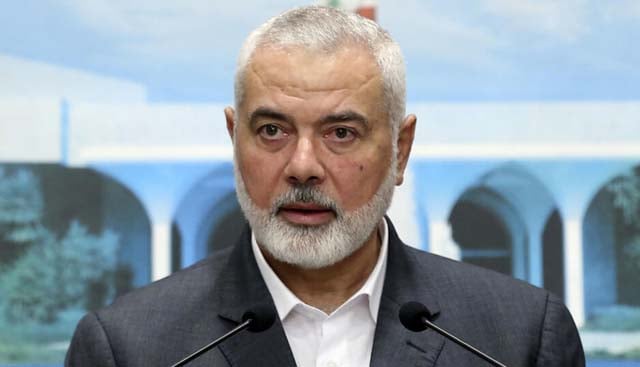
TEHRAN, July 31, 2024 (BSS/AFP) - Hamas said Wednesday its political leader Ismail Haniyeh was killed in an Israeli strike in Iran, where he was attending the swearing-in of the new president, and vowed the act "will not go unanswered".
Iran's supreme leader Ayatollah Ali Khamenei too threatened "harsh punishment" for Haniyeh's killing, saying: "We consider it our duty to seek revenge for his blood as he was martyred in the territory of the Islamic Republic of Iran."
Israel declined to comment on the Tehran strike, which came after it struck a Hezbollah stronghold in south Beirut on Tuesday, targeting a senior commander of the Lebanese militant group it blamed for a deadly weekend rocket strike on the Israeli-annexed Golan Heights.
"Brother leader, mujahid Ismail Haniyeh, the head of the movement, died in a Zionist strike on his residence in Tehran after he participated in the inauguration of the new (Iranian) president," the Palestinian militant group said in a statement.
Hamas political bureau member Musa Abu Marzuk vowed the group would retaliate. "The assassination of leader Ismail Haniyeh is a cowardly act and will not go unanswered," he said.
Iran's Revolutionary Guards also announced the death, saying Haniyeh's residence in Tehran was hit and he was killed along with a bodyguard.
Iranian media said the strike that killed Haniyeh took place at around 2:00 am (2230 GMT), targeting "the special residences for war veterans in north Tehran" where he was staying.
Haniyeh had travelled to Tehran to attend Tuesday's swearing-in of President Masoud Pezeshkian.
On Wednesday, Pezeshkian vowed to make Israel "regret" Haniyeh's killing.
"The Islamic Republic of Iran will defend its territorial integrity, honour, pride and dignity, and make the terrorist invaders regret their cowardly action," Pezeshkian said in a post.
- 'Set the region ablaze' -
Palestinian president Mahmud Abbas condemned Haniyeh's killing as a "cowardly act". Palestinians factions in the Israeli-occupied West Bank called for a general strike and protest marches across the territory.
Iran ally Syria warned the strike could "set the region ablaze".
Turkish President Recep Tayyip Erdogan condemned the "perfidious assassination" of the Hamas leader.
Russia said it was a "completely unacceptable political assassination" that would "lead to a further escalation of tensions."
Israeli Prime Minister Benyamin Netanyahu has vowed to destroy Hamas in retaliaton for its October 7 attacks on Israel, which sparked the war in Gaza.
The attacks resulted in the deaths of 1,197 people, mostly civilians, according to an AFP tally based on official Israeli figures.
Militants also seized 251 hostages, 111 of whom are still held captive in Gaza, including 39 the military says are dead.
Israel's retaliatory campaign against Hamas has killed at least 39,400 people in Gaza, according to the Hamas-run territory's health ministry, which does not provide details on civilian and militant deaths.
Regional tensions have soared during the war, drawing in Iran-backed militant groups in Syria, Lebanon, Iraq and Yemen.
Haniyeh was elected head of the Hamas political bureau in 2017 to succeed Khaled Meshaal.
He was already a well-known figure having become Palestinian prime minister in 2006 following an upset victory by Hamas in that year's parliamentary election.
Considered a pragmatist, Haniyeh lived in exile and split his time between Turkey and Qatar.
He had travelled on diplomatic missions to Iran and Turkey during the war, meeting both the Turkish and Iranian presidents.
Haniyeh was said to maintain good relations with the heads of the various Palestinian factions, including rivals to Hamas.
He joined Hamas in 1987 when the militant group was founded amid the outbreak of the first Palestinian intifada, or uprising, against Israeli occupation, which lasted until 1993.
Hamas is part of the "axis of resistance" of Iran-backed armed groups around the Middle East arrayed against arch-foe Israel.
Iran has made support for the Palestinian cause a centrepiece of its foreign policy since the 1979 Islamic revolution.
It hailed Hamas's October 7 attacks but denied any involvement.